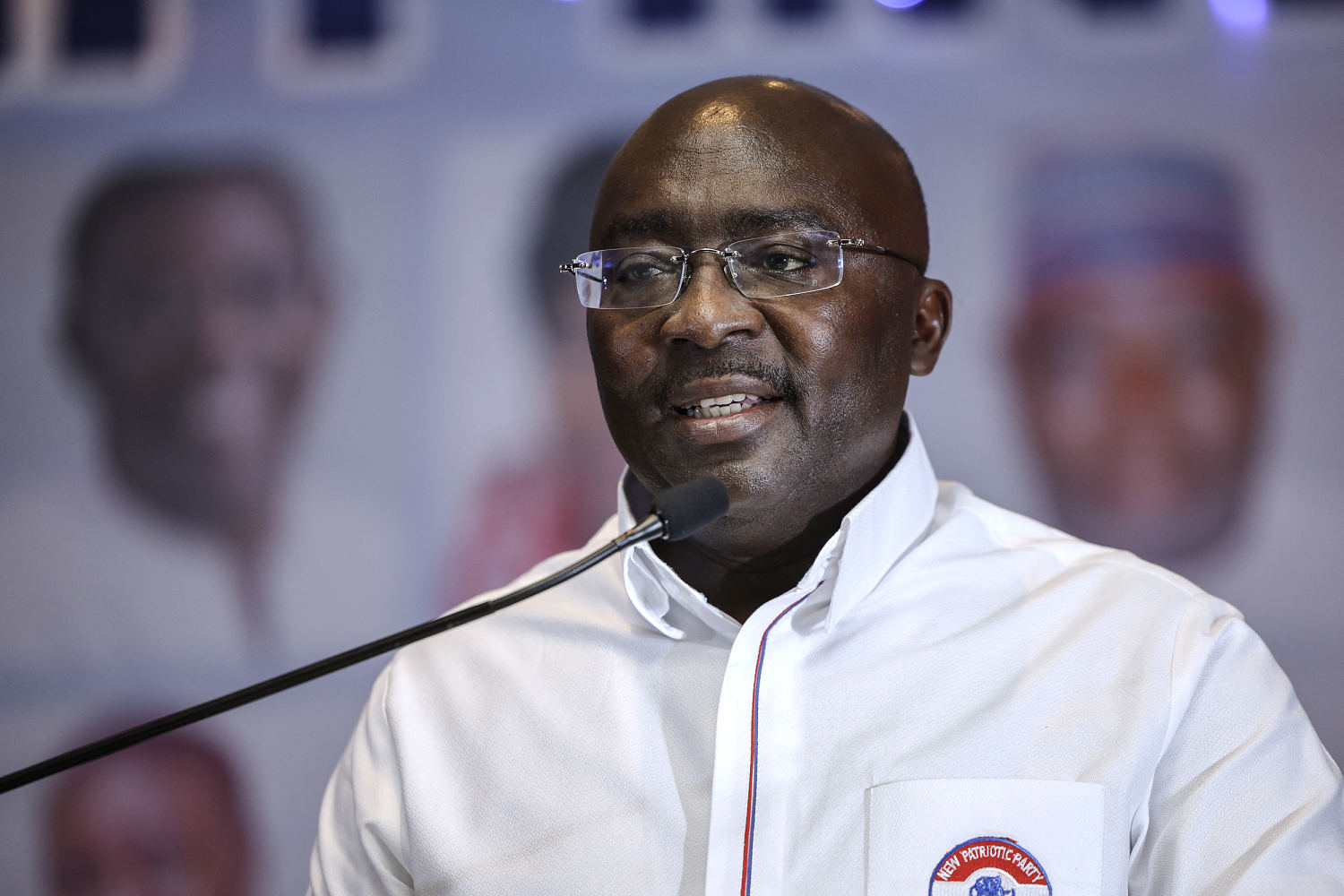
ACCRA – Ghana’s ruling party’s presidential candidate, Vice President Mahamudu Bawumia, on Thursday said he was against the “practice of homosexuality”, a position he vowed to uphold if elected in December.
President Nana Akufo-Addo is under pressure to sign one of Africa’s laws Toughest anti-LGBTQ lawscriticized by human rights activists and the United Nations.
Speaking at prayers to mark the end of the Muslim holy month of Ramadan, Bawumia did not address the bill but said: “It must be noted that as Ghanaians, our cultural and societal norms and values frown upon the practice of homosexuality.
“All the major religious traditions in Ghana are against this practice and I am against it now and I will oppose it as president,” he said, making his first public appearance as a candidate.
Bawumia’s main rival for the presidency, former President John Dramani Mahama, made similar comments in January.
Their views will appeal to many in the culturally conservative West African country, where gay sex is already punishable by up to three years in prison and LGBTQ people. they regularly face harassment and abuse.
Ghanaian activist Angel Maxine, who is a transgender woman, said Bawumia’s position was “very dangerous and homophobic”.
“This … political propaganda and LGBTQ+ lives should not be used as a means of distraction and political point(s),” he said in his message.
In February, parliament unanimously passed a bill that would strengthen the crackdown on LGBTQ rights and punish those who promote their lesbian, gay, bisexual or transgender identities.
Proponents of the bill, however, demanded that it be promulgated Warning to the Ministry of Finance That could jeopardize $3.8 million in World Bank financing and derail a $3 billion loan package from the International Monetary Fund.
The president’s office said it was awaiting the outcome of two legal challenges before submitting the law to Akufo-Addo for approval.
If the bill goes into effect, those found guilty of “intentionally promoting, sponsoring or supporting LGBTQ activities” face up to five years in prison.
The United Nations said in 2021 that the then-drafted law would create a “system of state-sponsored discrimination and violence” against the LGBTQ community in the West African country.
